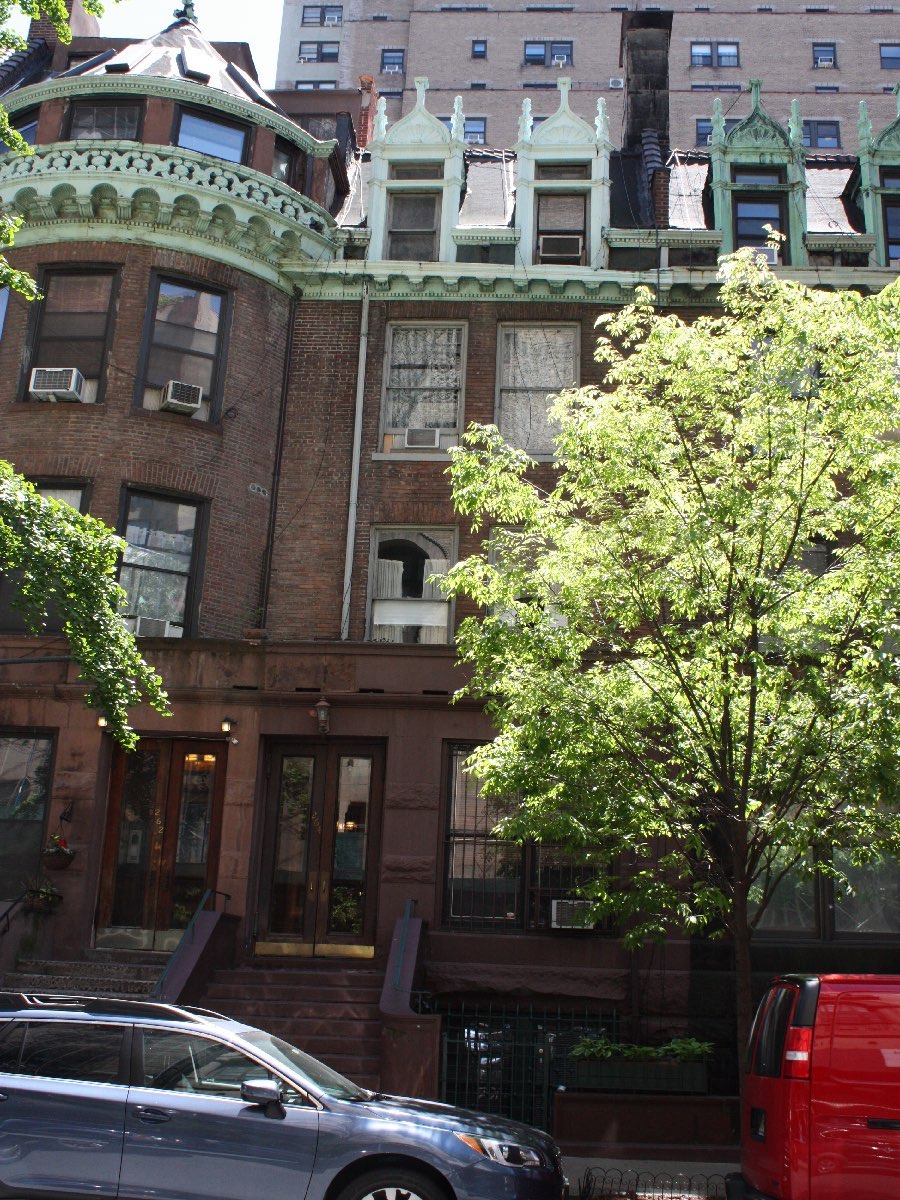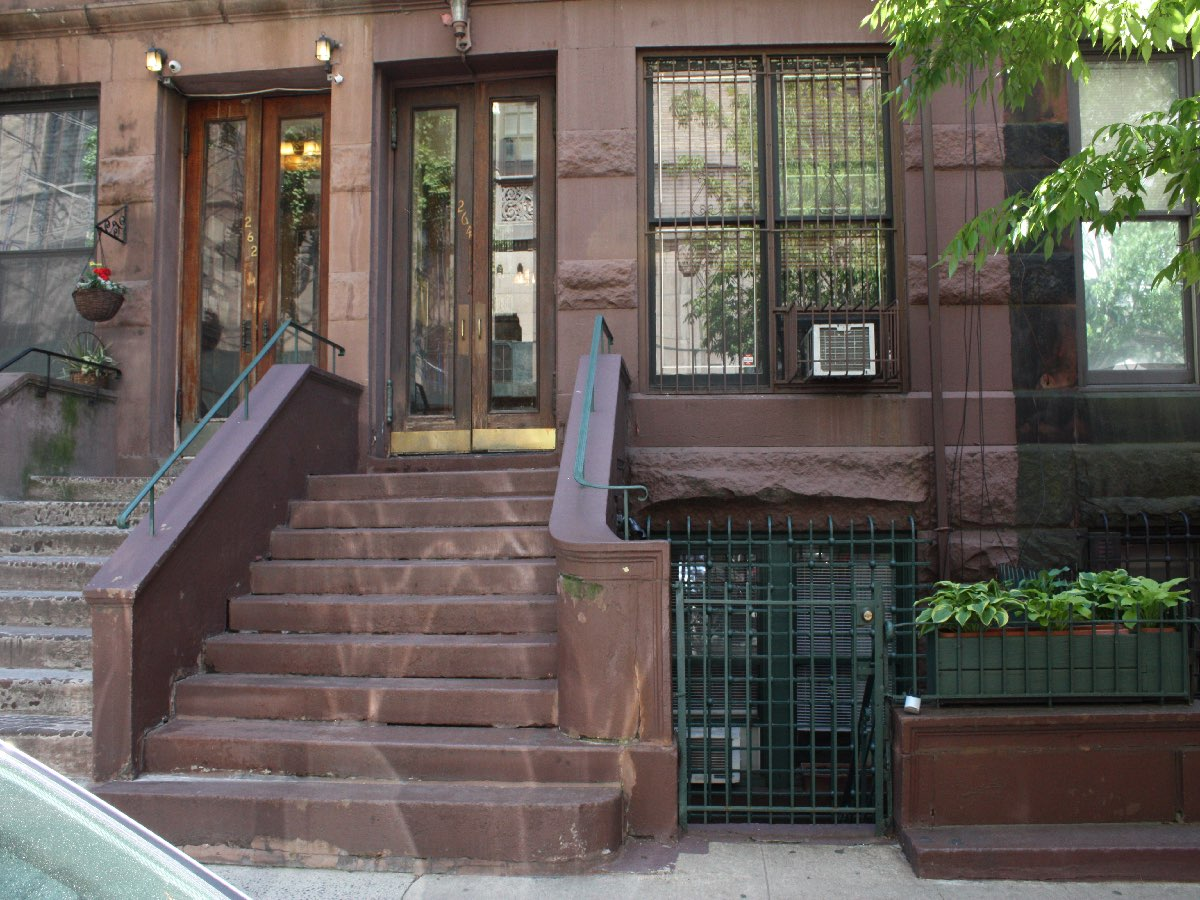264 West 73rd Street
Date: 1887-88
NB Number: NB 569-1887
Type: Rowhouse
Architect: Mott, Charles T.
Developer/Owner/Builder: William J. Merritt & Co.
NYC Landmarks Designation: Historic District
Landmark Designation Report: Addendum to the West End-Collegiate Historic District Extension Designation Report
National Register Designation: N/A
Primary Style: Romanesque Revival
Primary Facade: Brick and Brownstone
Stories: 4 and basement
Historic District: West End-Collegiate HD Extension
Significant Architectural Features: Rusticated brownstone at basement and first story, brick above with splayed brick lintels; first story and basement project slightly from upper stories, with solid brownstone parapet above first story; dormers with ogee pediments, coquillage, and foliate finials at fourth story; mirror image to 266 West 73rd Street, adjacent to the west.
Alterations: Replaced sashes at first story and basement (one-over-one double-hung sashes present in c. 1939 tax photograph); openings beneath basement window openings filled in; two foliate brackets removed from eastern end of cornice (date not determined); painted decorative elements at fourth story; light fixture at main entry and at under-stoop gate.
Building Notes: New building application 569-1887 was for the development of 19 row houses, designed by Charles T. Mott (238 to 272 West 73rd Street). Only 16 of the original row houses were completed (January 5, 1889), with two of the not-completed homes located in the middle of the row. These two homes, nos. 246 and 248, were later constructed as part of a separate building application (NB 597-1889). Four of the houses were later demolished for construction of the apartment house at 240 West 73rd Street (aka 238-244 West 73rd Street), leaving 14 houses of the original row still standing, including the two 1889 structures. The homes are each distinct in design, but some have interrelated architectural elements, including continuous bands and cornices, meant to tie them together into cohesive groups.
Site Features: Brownstone (painted) stairs with possibly-historic metal handrails descend into areaway.
North Facade: Designed (historic, repointed, painted at basement and first story)
Stoop: Resurfaced stoop (gate under stoop – original (painted))
Door(s): Possibly historic primary door
Windows: Mixed (upper stories); possibly historic (basement)
Security Grilles: Historic (basement)
Roof: Replaced (pitched – barrel tiles)
Notable Roof Features: Sloped roof
Cornice: Original
Areaway Wall/Fence Material(s): Low brownstone wall (painted) with non-original low metal railing and gate
Areaway Paving Material(s): Brick
Sidewalk Material(s): Concrete
Curb Material(s): Granite


